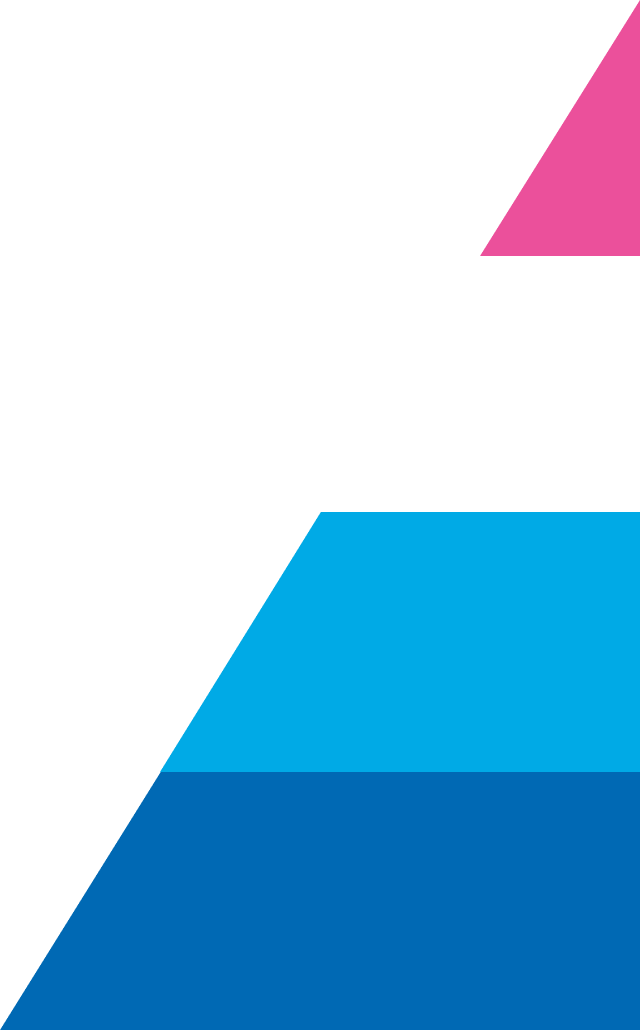Paralympic Medalist Sophia Herzog Encouraging Next Generation to Find Their Passion
Paralympic Swimmer Sophia Herzog joined her first club team at the age of 12 and began her journey in competitive swimming immediately. “It got pretty serious there,” she said. ”Being a dwarf, I am involved in LPA (Little People of America) and some Paralympians at that time saw me swim at an LP
A event. It was all pretty quick at that point when I realized it was something I wanted to do.”
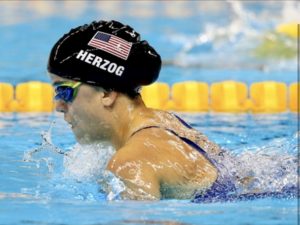
Sport provided a sense of family and community to Herzog. “There were five girls on the club team, so we had so much fun.” Herzog learned how to swim when she was three years old. She also grew up playing a lot of other sports, including basketball, volleyball, horseback riding, and skiing. Of course, she had to do the latter because she lived in Colorado after all. Once she started getting serious about swimming, she dropped the school sports. “But I had a horse and continued with horseback riding as well as skiing
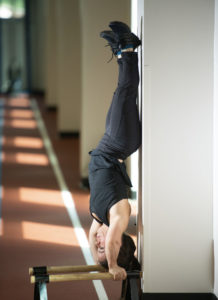
.” Both turned into hobbies. “Skiing is great cross training and horseback riding provides a nice mental break.”
At the 2016 Paralympic Games in Rio, Herzog won a silver medal in 100 meter and she is hoping to compete this summer in Tokyo. “
I’m motivated to recreate that feeling and that experience of being on the medal stand and representing your country.” This will be Herzog’s last Paralympics. “I will be 24 in Tokyo. My body has been doing this for the past 12 years and it is time to give the body a break.”
After all, Herzog trains four to six hours a day and is expected to recover an additional four hours, which could include either a nap, massage, stretching, or other rest. An average day starts at 6:00 a.m. with two sessions until about 10:00 a.m. and another session from 6-8 p.m. She spends two sessions in the water and one in the gym, with cardio being done in the water. On Sunday, she tries to do some yoga for relaxation. “Mentally I can really wire myself up so yoga helps with that.”
This year has been particularly challenging for Herzog, as well as many athletes, due to the Coronavirus pandemic. “I am a Type A personally and I like routines and schedules. At the beginning (of the pandemic), I was out of the water for four months, the longest I’ve been out in a very long time.” Since then, getting pool time has been spotty given that she swims at a city facility and there are ups and downs when the facility has been open. “It has been an eye opening to realize h ow much I depend on others.” In addition, Herzog says that you can’t mimic your swim training like you can with other sports.
Thanks in part to a Travel and Training Fund grant from the Women’s Sports Foundation, one thing Herzog has not had to worry about as much is funding. “80% of Paralympic athletes live at or below the poverty line, so many have to get a job to make ends meet.” This grant will allow her to focus efforts on training and to travel to both Paralympic trials in April (in Indianapolis) and June (in Minneapolis). “So I don’t have to worry and stress over the financial aspects.”
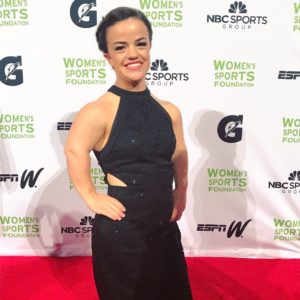
Herzog is an athlete ambassador for the Women’s Sports Foundation and she will be one of the guest speakers for the National Girls and Women in Sports Day on February 3. This annual event, which is celebrating its 35th Anniversary, inspires girls and women to play and be active, to realize their full power, and to promote equality in sports.” You can participate in this virtual event or learn more at https://www.womenssportsfoundation.org/get-involved/ngwsd/2021-girls-fest/.
Sports was hard for Herzog early on, as she felt she was not on that level playing field. “The Paralympics level it out, so I’m trying to get the word out and inspire the next generation to find their passion and have confidence to know they can do what they put their mind to.”
“I grew up in a town where I was the first child to go through the school district with a physical disability, so I was pretty aware right of the bat that I was different.” As a result, Herzog tries to make school and everyday life as similar as it is for able bodied people. “There are some modifications I have to do every day to be on an equal playing field. I may have to work ten times harder to be on that playing field but sports make me confident to do so.”
Following the Tokyo games, Herzog plans to try figure out what she wants to do next. “I’ve been so hyper focused on sports the past 12 years that I haven’t developed other passions outside of swimming. I haven’t been able to explore other options and I’m ready to start that next chapter of my life.” You can follow her journey on social media via @SophiaH
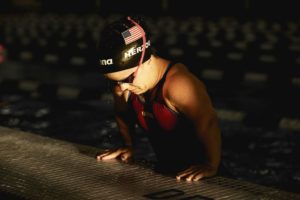
erzog.


